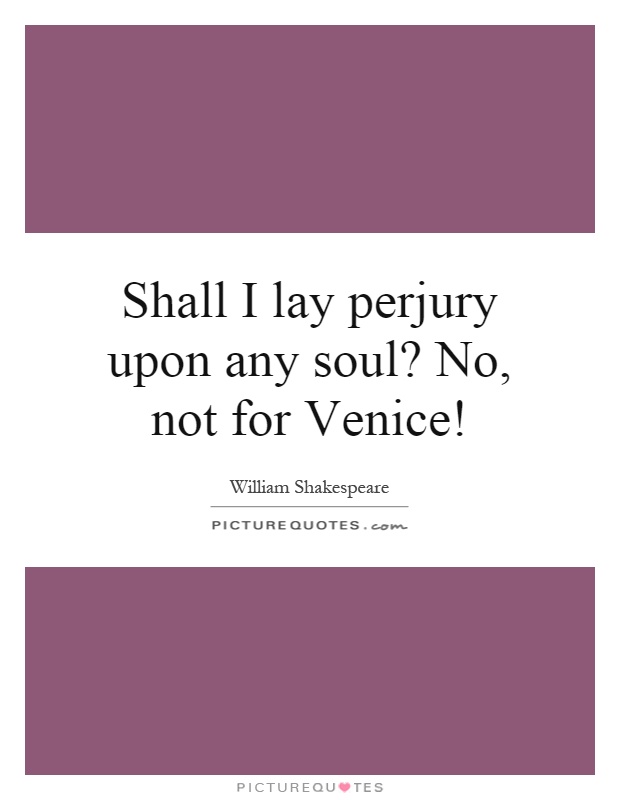Shall I lay perjury upon any soul? No, not for Venice!

Shall I lay perjury upon any soul? No, not for Venice!
"Shall I lay perjury upon any soul? No, not for Venice!" These powerful words spoken by Portia in William Shakespeare's play "The Merchant of Venice" encapsulate the theme of justice, honor, and loyalty that runs throughout the play.In this particular scene, Portia is disguised as a male lawyer and is presiding over the trial of Antonio, who has agreed to forfeit a pound of his flesh to Shylock, a Jewish moneylender, if he is unable to repay his debt. Portia, in her disguise, is determined to ensure that justice is served and that no one is wronged in the process.
The phrase "Shall I lay perjury upon any soul? No, not for Venice!" highlights Portia's commitment to upholding the truth and the law, even at the risk of losing the case. She refuses to compromise her integrity or betray her principles for the sake of winning a legal battle. This demonstrates her strong sense of morality and her belief in doing what is right, regardless of the consequences.
Furthermore, the mention of Venice in the quote is significant as it symbolizes the city's reputation for justice and fairness. Venice was known for its legal system and its commitment to upholding the law, making it a fitting backdrop for the play's themes of justice and mercy.
Overall, this quote showcases Shakespeare's skill in crafting complex and morally ambiguous characters who grapple with difficult decisions and ethical dilemmas. Portia's unwavering commitment to truth and justice serves as a moral compass in the play, guiding the characters and the audience towards a deeper understanding of right and wrong.












 Friendship Quotes
Friendship Quotes Love Quotes
Love Quotes Life Quotes
Life Quotes Funny Quotes
Funny Quotes Motivational Quotes
Motivational Quotes Inspirational Quotes
Inspirational Quotes